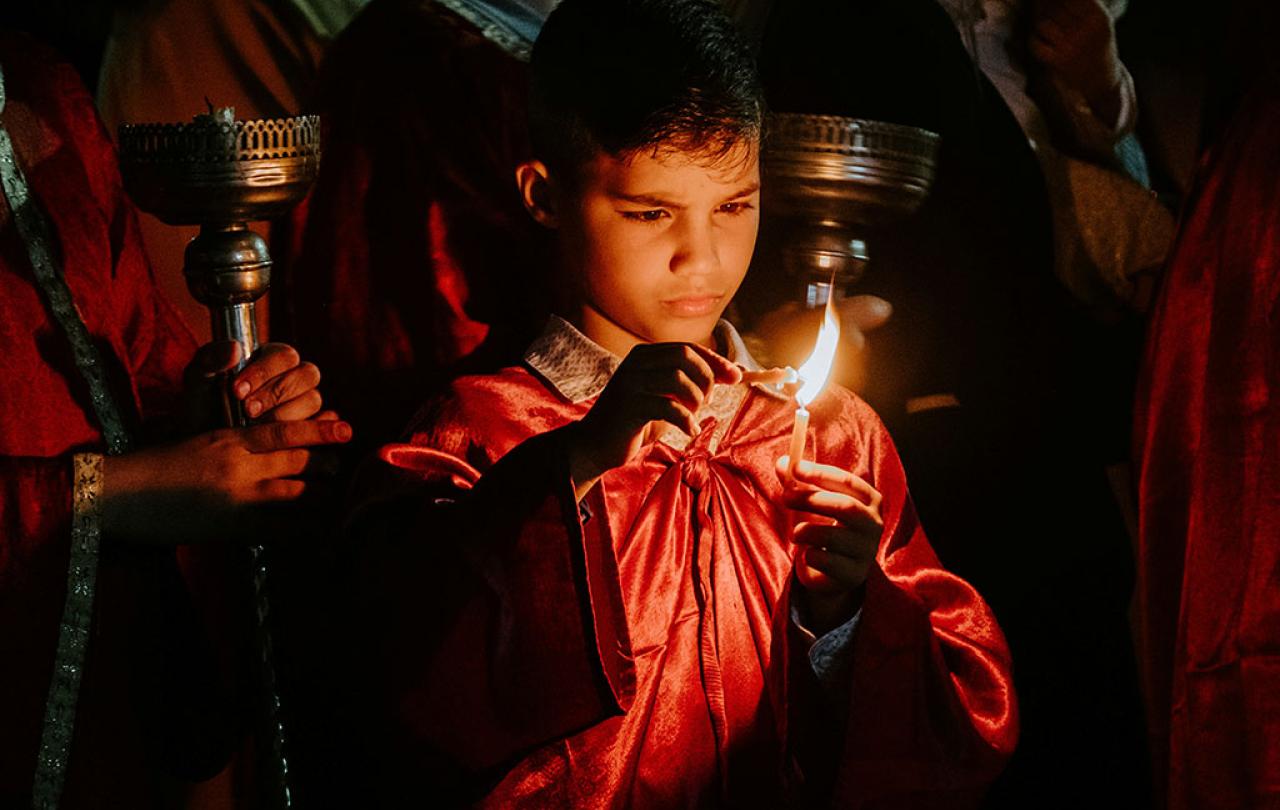
For many people in 2024, Christmas is the one time of year that they might seek out a church service. As they survey their local parishes' banquet of offerings, ‘Midnight Mass’ (or ‘Midnight Communion’) may be one dish that jumps out to them.
But what is this strange midnight event, and where does it come from? Let’s dive in.
Quite straightforwardly, Midnight Mass is all the same words and actions from a Sunday morning Communion service - i.e., the bread and wine blessing, performed as per Jesus’ command during the Last Supper to “do this in remembrance of me”. Midnight Mass typically begins just before Christmas Day starts at midnight. You can expect a quiet, but poignant service, recalling the birth of Jesus - whom Christians regard as the world’s true king - born in the wee small hours, in a provincial backwater of first century Judea.
It is a very old tradition. Christians from the get-go would celebrate the great calendar days by holding ‘vigils’ - that is, by staying up all night for prayers and singing, and then conducting a communion service at dawn. In the late fourth century, a western pilgrim called Etheria writes about her visit to the middle east. Already, she records, Christians were doing special ceremonies for the Nativity (the feast day of Jesus’ birth), including a procession all the way from Bethlehem to Jerusalem in the middle of the night. Etheria notes that it takes longer than expected because some of the monks penitentialy refuse to wear shoes.
But the early Christians were quite particular about something else: the communion bit should only happen in daylight. They would always reserve that part of their celebration for the sunrise. But how could they develop their celebrations of Jesus’ birth - bearing in mind that tradition held he was born at midnight on the 25th December - with this ban on nighttime communion?
In 440, the Pope permitted a communion service beginning at midnight as a special ‘one off’ for Christmas. In fact, he allowed for three - one at midnight, one at dawn, and one at the usual midmorning. This was a welcome innovation, because Christians were already quite smitten with Christmas - they loved the festival, and many popular customs built up around it.
After the Protestant reformation, the Church of England stopped the Christmas tradition of a midnight service, preferring a morning communion on the 25th alone. But in the mid 19th century, amid a lot of general nostalgia for an ‘Olde English Christmas’, it returned, and has been a fairly consistent Anglican offering ever since.
If you attend a Midnight Mass this Christmas, you will be joining in with something that Christians have done for centuries, and which was a result of a fascination with the facts of Jesus’ birth. Christmas rituals did not spring from any pagan winter festivals, despite what fashionable critics might say. Rather - as you might notice yourself, sat in a pew on a dark winter night - they were animated by a completely new hope: the sense, however small and unexpected, that a great light had come near.
Join with us - Behind the Seen
Seen & Unseen is free for everyone and is made possible through the generosity of our amazing community of supporters.
If you’re enjoying Seen & Unseen, would you consider making a gift towards our work?
Alongside other benefits (book discounts etc.), you’ll receive an extra fortnightly email from me sharing what I’m reading and my reflections on the ideas that are shaping our times.
Graham Tomlin
Editor-in-Chief













